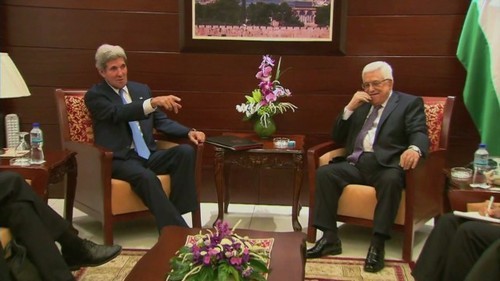
By: Shahab Moghadam
Monday evening marked the beginning of a new era in the Middle Eastern peace process, as Israeli and Palestinian diplomats descended on Washington for the first peace talks in three years, which have been launched with much hype and great hope for progress but also the same pressing problems as before, ranging from Jewish settlements in the West Bank to the thousands of Palestinian prisoners languishing in Israeli prisons for years on end.
U.S. Secretary of State John Kerry personally played a key role in arranging for both parties to return to the table in spite of the many unresolved issues plaguing any such talks while Israeli Prime Minister Benjamin Netanyahu made an impassioned appeal to his government and his nation to accept the preconditions set by the Palestinians for the peace process to resume in what is a clear departure from his typical hardline rhetoric. It is for those reasons as well as the fact that much of the region remains engulfed in flames after the Arab Spring ignited long-seething discontent on the part of the Arab masses that these particular talks seem more promising than similar ones held previously.
Whatever the result of the negotiations underway in Washington, much has been accomplished thus far in the resolution of the decades-old Israeli-Palestinian conflict which is unlikely to be reversed.
